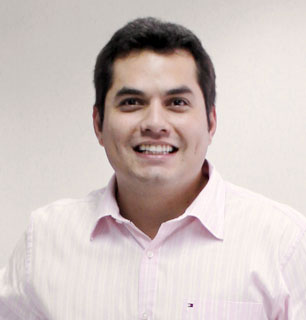
Laws of the time of Marconi still insist on governing the cloud society
It is true that the nation has been the scene of disturbances due to the inadequate application of old legal foundations. An example of this are the successive stoppages of WhatsApp on the initiative of authorities, perhaps with little knowledge of the subtleties and contradictions of digital reality. There remain many public actors that, well-intentioned, have not yet paid attention to the need for a new look at the application of the Law in the current context in which the space of citizenship is no longer the one that prevailed until the universalization of the Internet and the explosion of networks social.
But it is even due to episodes of this type that the anxiety of wide sectors grows for the National Congress to put Bill 5,276 / 2016 on the agenda, freeing society from this type of regulatory limbo, in which social existence within the scope of " third platform "continues to receive an institutional framework from the Marconi radio era.
We are all aware of the environment of conflict and the leadership crisis of legislative houses, but the country can no longer live under this regime of legal insecurity (or obscurity) with regard to the existence and digital integrity of citizens, institutions and companies.
This is the impatience that has also been moving the organized sectors of the products and services industry on the Brazilian Internet, as expressed in the recent Manifesto in defense of an independent authority for the protection of personal data, a document signed by Abes, Abranet, Brasscom and Assespro, and whose content is now fully endorsed by the board of Abrahosting.
There is an urgent need to define this independent body, composed of representatives of all parties involved in the Internet ecosystem, but, as far as possible, free from interference from governmental lobbying or transitional political interest. A multidisciplinary body, duly regulated by the constitutional authority, but with a comprehensive vision to respond in a balanced way by the interpretation, inspection and compliance with the complicated guidelines of the Law, whose scope intertwines issues ranging from individual law to public law and international law, as well as as from bioethics to competitive ethics and the defense of the person against the abusive power of the State.
Luckily (or due to the existence of a digital community extremely willing to discuss these issues), Brazil reached the aforementioned Bill of Law whose quality undoubtedly puts our country on a level of solution for data protection only compared the European Union.
A quick comparison between the provisions of PL 5.276 and the guidelines of the GPDL (or the European Union's General Data Protection Law) is sufficient to demonstrate how far Brazil has advanced in formulating our model and how important it is for the data protection in the country asserts itself on democratic and marketing bases consistent with that of a planetary network that is demanding a legal framework capable of facing the real issues of the new society.
Thus, a point on which we need to focus obsessively in 2017, is the insistence that the National Congress assume its responsibilities as soon as possible in order to vote on the PL in question and carefully considering the contributions of the industry, the academic environment, of the organizations and democratic representations of the three powers of the republic for the promulgation of the Law.
And that in a forum of this magnitude, the National Data Protection Council may be constituted in the coming months, along the lines of the EDA (European Data Protection Board), so that it can function as an institutional superstructure in the foundation of the independent body for the regulation of collection , use, storage, exchange and transfer of data from people and companies, including information of a character as diverse as that related to intellectual property and people's ethnic, biometric and ideological evidence.













